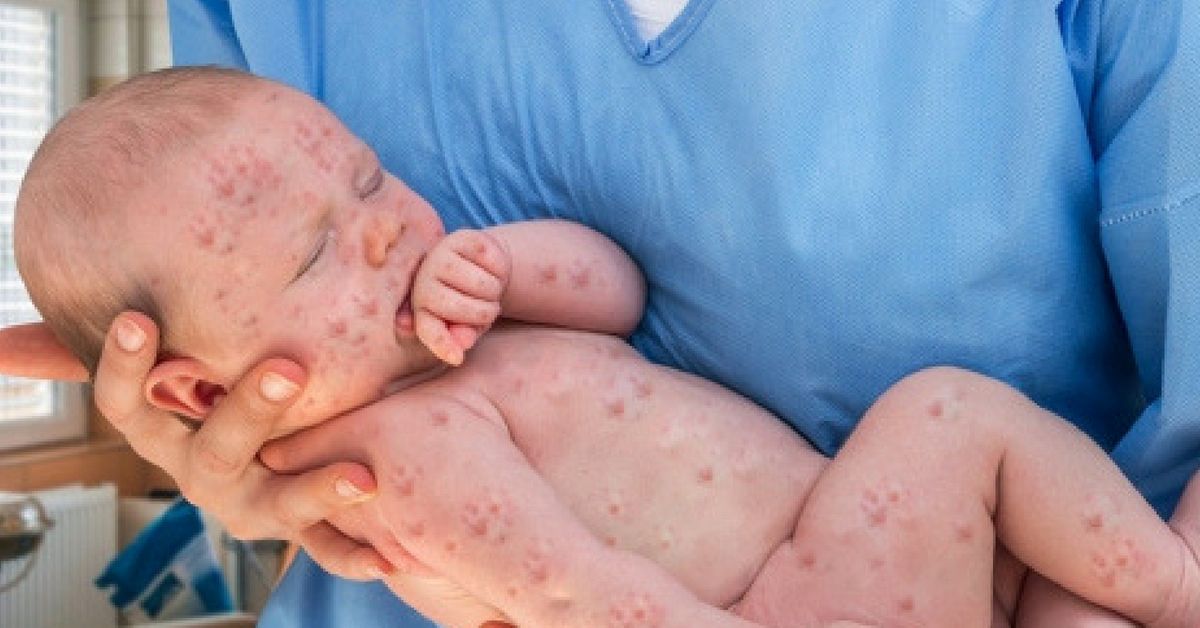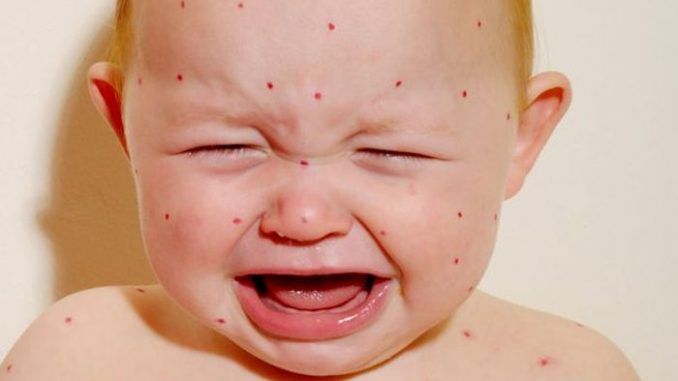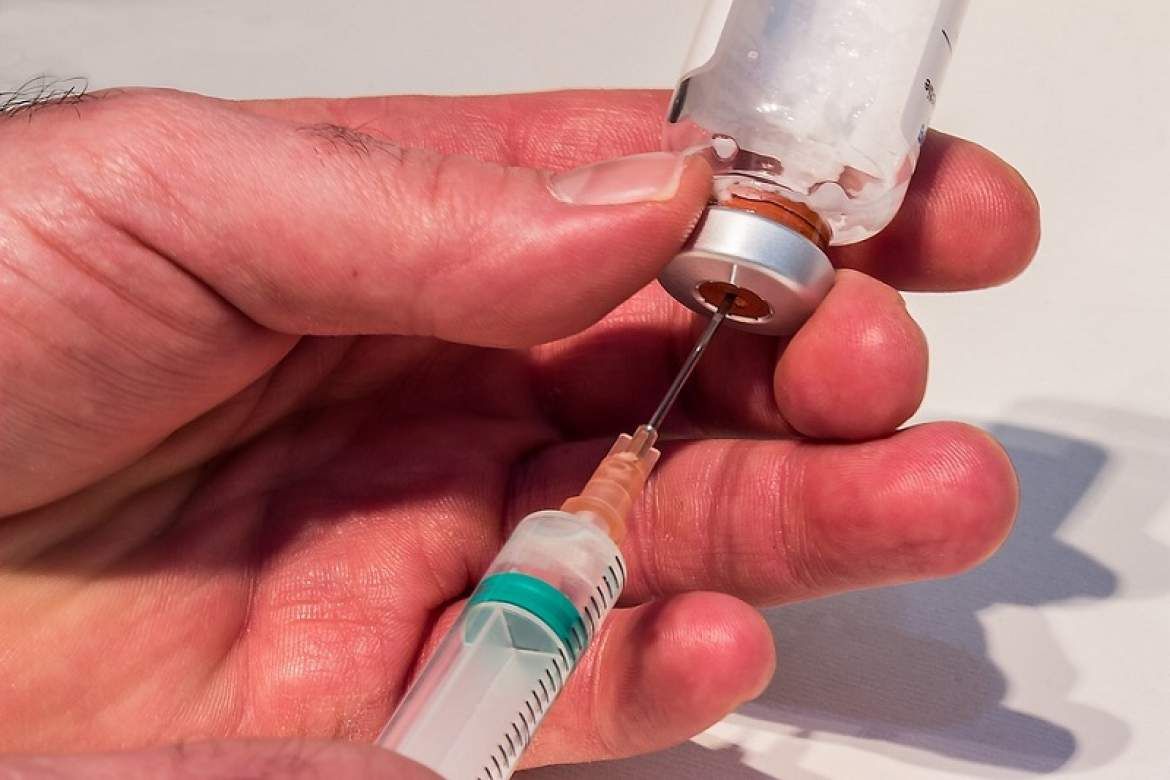This week, the U.S. Centers for Disease Control and Prevention (CDC) reported that there has been 107 cases of the measles since the beginning of 2018.
The contagious virus has spread to 21 states, which include Arkansas, California, Connecticut, Florida, Illinois, Indiana, Kansas, Louisiana, Maryland, Michigan, Missouri, Nevada, New Jersey, New York, North Carolina, Oklahoma, Oregon, Pennsylvania, Tennessee, Texas, Washington, and the nation's capital.
This news is worrisome now that many young children will be going back to school in the coming weeks.
The disease, which mainly affects young children, spreads though coughing and sneezing.
Symptoms of the virus include high fever, rashes, a stuffy nose, and red eyes. Typically, these symptoms will disappear after a few weeks, but according to the CDC, it's estimated that 1 out of 1,000 children who get measles will die from complications.
The health protection agency warns that a majority of people who have contracted the virus did not receive proper vaccinations.
"Measles can spread when it reaches a community in the U.S. where groups of people are unvaccinated."
The reason why this year is called an outbreak is because the CDC's mid-year analysis appears to be high in comparison to previous years.
In 2017, there were 118 cases of the measles in 15 states, and the year before that there were only 86 cases from 19 states.
Most notably, the largest outbreak was in 2014, where there were 667 reported cases in 27 states. Nearly half of those cases were connected to a single large outbreak.
We're told that we're experiencing another outbreak, but some experts think this amount of measles cases is normal for the U.S.
Kristen Nordlund, a representative for the CDC, confirmed that "there isn't one unified measles outbreak across the U.S." If there was, this would be far more concerning.
Since these outbreaks are in small pockets of different communities who have chosen not to vaccinate their kids, the number of cases aren't as alarming.
And since the measles is highly contagious, in which a single person can infect 90% of the people around them, it's not alarming to have numbers this high.
How To Protect Your Kids
People who don't get their kids immunized argue that these vaccinations cause autism.
Many studies have shown that this correlation is false, and health professionals encourage parents to get their kids vaccinated to protect not only their children, but others around them.
A few months ago, one mother lost her toddler to measles after her two-year-old girl contracted the virus in a hospital.
Because the little one was diagnosed with a condition that causes lower than average calcium levels, she could not be vaccinated at the time and was susceptible to the potentially fatal disease.
The grief-stricken mother shared this post on social media to raise awareness:
"I shared this story with you in order to educate parents who have doubts about the vaccination of their children. Every child has the right to be protected from infectious diseases. [My daughter] became a victim, giving up her own life, to show how this harmless child's disease can endanger one's life. Now it's up to us to share her story so that nobody suffers like she did. My angel left me too early, but I will fight so no one forgets here and goes through what I went through."
Share this article to raise awareness about this potentially deadly virus!
[H/T: CNN / Popular Science]





